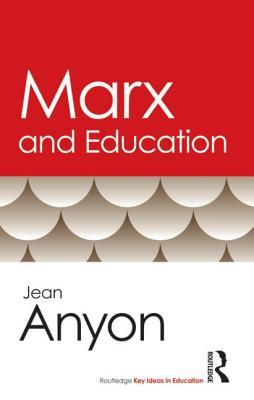There was only one Karl Marx, but there have been a multitude of Marxisms. This concise, introductory book by internationally renowned scholar Jean Anyon centers on the ideas of Marx that have been used in education studies as a guide to theory, analysis, research, and practice. Marx and Education begins with a brief overview of basic Marxist ideas and terms and then traces some of the main points scholars in education have been articulating since the late 1970s. Following this trajectory, Anyon details how social class analysis has developed in research and theory, how understanding the roles of education in society is influenced by a Marxian lens, how the failures of urban school reform can be understood through the lens of political economy, and how cultural analysis has laid the foundation for critical pedagogy in US classrooms. She assesses ways neo-Marxist thought can contribute to our understanding of issues that have arisen more recently and how a Marxist analysis can be important to an adequate understanding and transformation of the future of education and the economy. By exemplifying what is relevant in Marx, and replacing that which has been outdone by historical events, Marx and Education aims to restore the utility of Marxism as a theoretical and practical tool for educators.

There was only one Karl Marx, but there have been a multitude of Marxisms. This concise, introductory book by internationally renowned scholar Jean Anyon centers on the ideas of Marx that have been used in education studies as a guide to theory, analysis, research, and practice. Marx and Education begins with a brief overview of basic Marxist ideas and terms and then traces some of the main points scholars in education have been articulating since the late 1970s. Following this trajectory, Anyon details how social class analysis has developed in research and theory, how understanding the roles of education in society is influenced by a Marxian lens, how the failures of urban school reform can be understood through the lens of political economy, and how cultural analysis has laid the foundation for critical pedagogy in US classrooms. She assesses ways neo-Marxist thought can contribute to our understanding of issues that have arisen more recently and how a Marxist analysis can be important to an adequate understanding and transformation of the future of education and the economy. By exemplifying what is relevant in Marx, and replacing that which has been outdone by historical events, Marx and Education aims to restore the utility of Marxism as a theoretical and practical tool for educators.